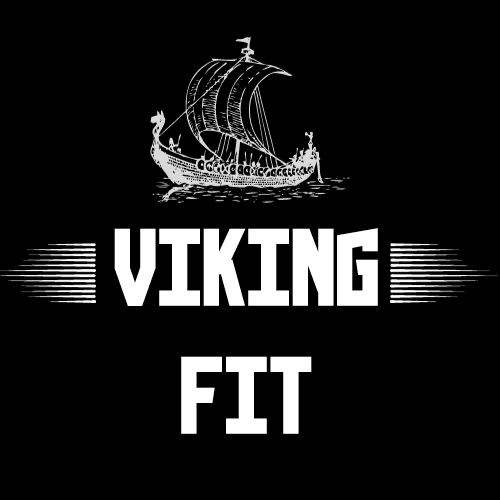Introduction:
Can you build muscle in a calorie deficit ? This question has puzzled fitness enthusiasts for years. In this comprehensive guide, we’ll delve into the science and strategies behind building muscle in a calorie deficit. Whether you’re a seasoned fitness enthusiast or just starting your journey, prepare to unlock the secrets to sculpting a lean, muscular physique while operating in a calorie deficit.
Imagine finally achieving the muscle definition and strength you’ve always desired, all while maintaining a calorie deficit and shedding excess body fat. With the right knowledge and strategies at your disposal, you’ll not only transform your body but also your confidence and self-esteem.
So, if you’re ready to break free from the limitations of conventional wisdom and take your muscle-building journey to new heights, buckle up and dive into the world of building muscle in a calorie deficit. Let’s empower you to defy expectations, crush your fitness goals, and sculpt the body of your dreams – starting today.
Table of Contents
Understanding the Basics
Can you build Muscle in a Calorie Deficit ? In the realm of fitness and muscle-building, understanding the basics is essential for laying a solid foundation. When it comes to the question of whether you can build muscle in a calorie deficit, grasping these fundamental concepts is key.
Calorie Deficit Defined: A calorie deficit occurs when you consume fewer calories than your body expends. This deficit can come from reducing your calorie intake, increasing your physical activity, or a combination of both. In essence, you’re creating an energy imbalance that prompts your body to tap into its stored energy reserves, including fat stores, to meet its energy needs.
Muscle Building and Calorie Balance: Traditionally, muscle building has been associated with consuming a surplus of calories, as this provides the energy and nutrients necessary for muscle growth. However, recent research has shown that under certain conditions, it is possible to build muscle in a calorie deficit.
Protein and Muscle Preservation: One crucial factor in building muscle in a calorie deficit is adequate protein intake. Protein plays a vital role in muscle repair and growth, and consuming enough protein can help preserve lean muscle mass even when in a calorie deficit. Aim to include protein-rich foods in your diet, such as lean meats, poultry, fish, eggs, dairy products, legumes, and tofu.
Resistance Training Importance:
Resistance training, also known as strength training or weightlifting, is a fundamental component of any comprehensive fitness regimen. While cardio exercises like running and cycling are valuable for cardiovascular health, resistance training offers unique benefits that extend beyond just building muscle. In this guide, we’ll delve into the importance of resistance training and why it should be a central focus in your fitness journey.
- Muscle Growth and Strength: One of the primary benefits of resistance training is its ability to stimulate muscle growth and increase strength. When you lift weights or engage in resistance exercises, you create microscopic tears in your muscle fibers. As these fibers repair themselves, they become stronger and larger, leading to muscle hypertrophy. Over time, consistent resistance training can result in significant gains in muscle mass and strength, improving your overall physical performance and functional capacity.
- Fat Loss and Metabolism: Contrary to popular belief, resistance training is highly effective for fat loss and improving body composition. Not only does resistance training burn calories during the workout itself, but it also increases your resting metabolic rate, meaning you’ll continue to burn calories at a higher rate even after you’ve finished exercising. Additionally, building lean muscle mass through resistance training can help boost your metabolism, making it easier to maintain a healthy weight and reduce body fat over time.
- Bone Health and Joint Stability: Resistance training is essential for maintaining bone health and preventing osteoporosis, especially as you age. Weight-bearing exercises like squats, lunges, and deadlifts stimulate bone growth and density, reducing the risk of fractures and osteoporotic fractures later in life. Additionally, resistance training helps improve joint stability and mobility by strengthening the muscles, ligaments, and tendons that support the joints, reducing the risk of injury and enhancing overall functional movement patterns.
- Enhanced Athletic Performance: Whether you’re an athlete or a fitness enthusiast, resistance training can significantly improve your athletic performance and sports-specific skills. By increasing muscle strength, power, and endurance, resistance training can help you run faster, jump higher, throw farther, and perform better in your chosen sport or physical activity. Additionally, resistance training can improve agility, balance, and coordination, enhancing your overall athletic prowess and reducing the risk of sports-related injuries.
- Longevity and Quality of Life: Regular resistance training has been linked to numerous health benefits that contribute to a longer, healthier life. In addition to improving muscle strength and bone density, resistance training can help lower blood pressure, reduce cholesterol levels, improve insulin sensitivity, and decrease the risk of chronic diseases such as heart disease, diabetes, and cancer. By promoting overall health and vitality, resistance training can help you enjoy a higher quality of life well into your golden years.
Can you build Muscle in a Calorie Deficit ?

The Science Behind Muscle Growth
Can you build Muscle in a Calorie Deficit ? Understanding the intricate processes that drive muscle growth is essential for anyone seeking to maximize their gains, especially in the context of a calorie deficit. Let’s delve into the science behind muscle growth and explore how it relates to building muscle in a calorie deficit.
Muscle Hypertrophy: Muscle growth, scientifically known as muscle hypertrophy, occurs when muscle fibers undergo damage, repair, and subsequent growth in response to mechanical stress. This process involves a complex interplay of physiological mechanisms orchestrated by the body.
Mechanical Tension: One of the primary drivers of muscle hypertrophy is mechanical tension. When muscles are subjected to resistance, such as lifting weights or performing bodyweight exercises, they experience microscopic damage at the cellular level. This damage triggers a cascade of cellular signaling pathways that ultimately lead to muscle repair and growth.
Metabolic Stress: In addition to mechanical tension, metabolic stress also plays a role in muscle growth. Metabolic stress refers to the accumulation of metabolic byproducts, such as lactate and hydrogen ions, within muscle cells during high-intensity workouts. This buildup of metabolites creates a favorable environment for muscle hypertrophy by stimulating the release of growth factors and promoting cellular swelling.
Muscle Protein Synthesis: Central to the process of muscle growth is muscle protein synthesis (MPS), the biological process by which cells build new proteins. Resistance training, particularly high-intensity resistance exercise, stimulates MPS, leading to the repair and remodeling of muscle tissue. Adequate protein intake, especially in the form of essential amino acids, is crucial for supporting MPS and maximizing muscle growth.
Can you build Muscle in a Calorie Deficit ?

Can You Build Muscle in a Calorie Deficit?
The age-old question of whether it’s possible to build muscle while in a calorie deficit has intrigued fitness enthusiasts for years. Let’s explore this topic and uncover the truth behind building muscle in a calorie deficit.
Understanding Calorie Deficits: First, let’s clarify what a calorie deficit entails. A calorie deficit occurs when you consume fewer calories than your body expends. This deficit can lead to weight loss as your body taps into its energy reserves to meet its energy needs.
Traditional Beliefs: Traditionally, it has been believed that building muscle requires consuming a surplus of calories, providing the energy and nutrients necessary for muscle growth. This surplus creates an environment conducive to muscle hypertrophy, where the body has an abundance of energy available for repair and growth.
Recent Research: However, recent research suggests that under certain conditions, it is indeed possible to build muscle in a calorie deficit. While a calorie surplus may optimize muscle growth, several factors contribute to muscle preservation and growth even in a deficit.
Protein Intake: One crucial factor is protein intake. Consuming an adequate amount of protein is essential for preserving lean muscle mass, even when in a calorie deficit. Protein provides the necessary amino acids for muscle repair and growth, minimizing muscle breakdown and supporting muscle protein synthesis.
Resistance Training: Another key component is resistance training. Engaging in regular strength training exercises, such as weightlifting or bodyweight exercises, helps stimulate muscle growth by placing stress on the muscles. This stimulus signals to your body that muscle tissue needs to be repaired and rebuilt stronger and larger than before.
Nutrient Timing and Quality: Additionally, nutrient timing and quality play a role in muscle building in a calorie deficit. Consuming a balanced diet rich in nutrient-dense foods, including lean proteins, complex carbohydrates, and healthy fats, can provide the essential nutrients needed for muscle repair and growth.
Achieving optimal fitness results goes beyond just exercising regularly; it also involves paying close attention to what and when you eat. Nutrient timing and quality play crucial roles in fueling your workouts, supporting muscle growth and recovery, and optimizing overall performance. In this guide, we’ll explore the significance of nutrient timing and quality in your fitness journey and provide practical strategies for maximizing your gains.
Achieving optimal fitness results goes beyond just exercising regularly; it also involves paying close attention to what and when you eat. Nutrient timing and quality play crucial roles in fueling your workouts, supporting muscle growth and recovery, and optimizing overall performance. In this guide, we’ll explore the significance of nutrient timing and quality in your fitness journey and provide practical strategies for maximizing your gains.
- Understanding Nutrient Timing: Nutrient timing refers to the strategic consumption of nutrients—specifically carbohydrates, protein, and fats—before, during, and after workouts to enhance performance, support recovery, and promote muscle growth. Here’s how you can optimize nutrient timing:
- Understanding Nutrient Timing: Nutrient timing refers to the strategic consumption of nutrients—specifically carbohydrates, protein, and fats—before, during, and after workouts to enhance performance, support recovery, and promote muscle growth. Here’s how you can optimize nutrient timing:
- Pre-Workout: Consume a balanced meal or snack containing carbohydrates and protein 1-2 hours before your workout to provide sustained energy and support muscle glycogen stores.
- Intra-Workout: Consider consuming fast-digesting carbohydrates or branched-chain amino acids (BCAAs) during prolonged or intense workouts to maintain energy levels and prevent muscle breakdown.
- Post-Workout: Consume a combination of carbohydrates and protein within 30-60 minutes after your workout to replenish glycogen stores, stimulate muscle protein synthesis, and accelerate recovery.
- Prioritizing Nutrient Quality: The quality of your food choices is just as important as the timing of your meals. Focus on consuming nutrient-dense, whole foods that provide essential vitamins, minerals, antioxidants, and macronutrients without unnecessary additives or preservatives. Here are some tips for prioritizing nutrient quality:
- Choose Whole Foods: opt for minimally processed foods such as fruits, vegetables, lean proteins, whole grains, and healthy fats to maximize nutrient intake and support overall health.
- Read Labels: Pay attention to ingredient lists and nutritional labels to avoid products high in added sugars, trans fats, and artificial ingredients.
- Balance Macronutrients: Aim to include a balance of carbohydrates, protein, and fats in each meal to support energy levels, muscle repair, and hormone production.
- Stay Hydrated: Don’t forget the importance of hydration in supporting exercise performance and recovery. Drink plenty of water throughout the day and consider electrolyte-rich fluids during and after workouts, especially in hot or humid conditions.
- Individualize Your Approach: While general guidelines for nutrient timing and quality are helpful, it’s essential to individualize your approach based on your specific goals, preferences, and dietary needs. Experiment with different meal timing strategies, food combinations, and nutrient ratios to find what works best for you and supports your fitness goals.
- Conclusion: Nutrient timing and quality are critical components of a well-rounded approach to fitness and nutrition. By strategically timing your meals and prioritizing nutrient-dense foods, you can optimize energy levels, support muscle growth and recovery, and enhance overall performance. Remember that consistency and experimentation are key to finding the right nutrition strategy that aligns with your goals and lifestyle. With mindful eating habits and a focus on nutrient timing and quality, you can fuel your fitness journey and unlock your full potential.
Can you build Muscle in a Calorie Deficit ?

Practical Strategies for Building Muscle in a Calorie Deficit
Can you build Muscle in a Calorie Deficit ? Building muscle in a calorie deficit requires a strategic approach that balances nutrition, exercise, and lifestyle factors. Let’s explore some practical strategies to help you maximize muscle growth even when operating in a calorie deficit.While traditional wisdom suggests that building muscle requires a caloric surplus, it’s indeed possible to make significant gains in muscle mass even while in a calorie deficit. Whether you’re aiming to shed excess body fat or maintain a lean physique while gaining muscle, strategic nutrition, training, and recovery can help you achieve your goals. In this guide, we’ll explore practical strategies for building muscle in a calorie deficit without compromising your progress or performance.
1. Prioritize Protein Intake: Protein is the building block of muscle tissue and essential for muscle repair and growth. Aim to consume a sufficient amount of protein, around 1.6-2.2 grams per kilogram of body weight per day, to support muscle preservation and growth in a calorie deficit.
2. Focus on Resistance Training: Resistance training, such as weightlifting or bodyweight exercises, is crucial for stimulating muscle growth. Incorporate compound exercises that target multiple muscle groups, and aim to progressively overload your muscles over time to promote hypertrophy for Building muscle in a calorie deficit
3. Monitor Your Caloric Intake: While in a calorie deficit, it’s essential to monitor your caloric intake to ensure you’re consuming enough nutrients to support muscle growth while still maintaining a deficit. Use tracking tools or apps to keep track of your food intake and adjust your diet as needed to meet your goals for Building muscle in a calorie deficit
4. Optimize Nutrient Timing: Pay attention to when you consume your nutrients, especially protein and carbohydrates, around your workouts. Consuming a balanced meal or snack containing protein and carbohydrates before and after your workouts can help fuel your training and support muscle recovery and growth.
5. Get Sufficient Rest and Recovery: Rest and recovery are essential for Building muscle in a calorie deficit, especially when in a calorie deficit. Aim to get adequate sleep each night, around 7-9 hours, to support muscle repair and hormone regulation. Incorporate rest days into your training schedule to allow your muscles time to recover and grow.
6. Stay Hydrated: Hydration is often overlooked but crucial for optimal muscle function and growth. Aim to drink enough water throughout the day to stay hydrated, especially before, during, and after your workouts.
Building muscle in a calorie deficit requires a strategic approach to nutrition, training, and recovery. By prioritizing protein intake, optimizing nutrient timing, emphasizing resistance and HIIT training, monitoring recovery, and adjusting your calorie deficit appropriately, you can achieve significant gains in muscle mass while simultaneously reducing body fat. Remember to be patient, stay consistent, and listen to your body’s signals to achieve long-term success in your fitness journey and Building muscle in a calorie deficit . if you are interested another topics we recommended workout at home with bench : Effective Exercises and Tips

Conclusion
In conclusion, the question of Can you build Muscle in a Calorie Deficit ? whether you can building muscle in a calorie deficit has been thoroughly explored, and the answer is a resounding yes. While building muscle in a calorie deficit may present challenges, it is entirely achievable with the right approach and strategies.
Key Takeaways:
- Nutrition is Key: Adequate protein intake is crucial for preserving lean muscle mass and supporting muscle growth, even when in a calorie deficit. Focus on consuming protein-rich foods such as lean meats, poultry, fish, eggs, dairy products, legumes, and tofu.
- Resistance Training Matters: Engaging in regular resistance training exercises is essential for stimulating muscle growth and maintaining muscle mass while in a calorie deficit. Incorporate compound exercises that target multiple muscle groups and progressively overload your muscles over time.
- Mind Your Macros: While overall calorie intake is important for weight management, paying attention to macronutrient distribution, particularly protein intake, can significantly impact muscle preservation and growth.
- Consistency is Key: Building muscle in a calorie deficit requires consistency and dedication. Stick to your nutrition and training plan, monitor your progress, and adjust as needed to stay on track towards your muscle-building goals.
- finally i hope the answer of your question Can you build Muscle in a Calorie Deficit ?





Pingback: workout at home with bench : Effective Exercises and Tips - vikingfit22.com
Pingback: Best Pre Workout For Muscle Growth - Vikingfit22.com